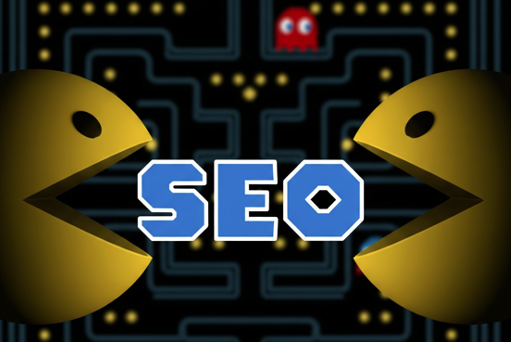In the race to climb Google’s search rankings, too many brands have lost sight of the bigger picture. Caught in a loop of publishing SEO-driven content piece after content piece, they unknowingly start competing with themselves for visibility – a hidden pitfall known as keyword cannibalism.
We’re seeing this trend more frequently in our content audits and strategy sessions. And while the goal is usually positive – to boost traffic and improve keyword rankings through search engine optimisation (SEO) – the outcome often misses the mark, resulting in content that doesn’t perform well or resonate with human audiences.
What is keyword cannibalism?
Put simply, keyword cannibalism happens when multiple pieces of content on the same website target the same keyword or topic. Instead of helping, this hurts the site. Google struggles to identify the most relevant page, and as a result, none of the competing pages perform as well as they could.
In practical terms, if a brand publishes two blog posts on “the best running shoes” and a separate but related piece entitled “top running shoe reviews”, they are all optimised for the same term; they may be slightly different, but not definitive.
A search engine might see them as duplicates, not knowing which one to rank. Instead of a single, authoritative page, you end up with two mediocre pages that are fighting for the same spot. Authority gets fragmented across multiple URLs, and the brand ends up eroding its own SEO equity.
We’ve seen this first hand with brands with more than a dozen articles targeting variations of the same core keyword. Instead of amplifying their message, this approach dilutes it and makes it bland – both for search engines and for users.
By consolidating and realigning the content under a clearer strategy, we help brands regain rankings and reclaim their voice as a thought leader in their space.
Why the obsession with SEO content is risky
The allure of “feeding the algorithm” is strong – SEO metrics are exciting. But in chasing quick wins, brands often sacrifice long-term resonance.
At Flow Communications, we believe content should serve people first and algorithms second. Storytelling, after all, isn’t just about building a narrative – it’s about creating connection.
Keyword cannibalism is a symptom of a mindset that prioritises SEO over everything. It reflects a reactive, siloed approach to publishing where every content piece is created in isolation, with little regard for what’s already been said – or what the audience actually needs to hear.
Signs you’re competing with yourself
If you’re not sure whether keyword cannibalism is affecting your brand, here are a few red flags:
- Multiple blog posts or pages targeting the same search term
- Declining rankings despite increased content production
- Fluctuating page visibility for the same keyword
- Lower-than-expected click-through rates from search results
- High bounce rates on topic cluster pages (page visitors are leaving without engaging)
How to fix keyword cannibalism
Avoiding keyword cannibalism starts with strategic intent – not just better SEO, but smarter storytelling. Here’s what we advise:
-
Audit your content regularly
Map out existing content and group it by keyword or topic. This will give you a clear view of your content landscape.
-
Consolidate where it makes sense
If you have multiple posts covering the same ground, consider merging them into a single, authoritative piece – one that Google and your audience can both trust.
-
Create a clear content hierarchy
Not every post needs to rank for the same keyword. Use supporting articles to link back to cornerstone content and build thematic depth rather than duplication.
-
Think about the audience first
Ask: what is the reader looking for? What’s the most helpful, authentic way to deliver that? That mindset shift alone can eliminate much of the cannibalism risk.
-
Build SEO into strategy, not as an afterthought
Integrate SEO into the planning phase, not just at the publishing stage. That means aligning content goals with search intent and business objectives – from the start.
Brands often don’t need more content. They need better content, rooted in strategy and built on storytelling. When you stop obsessing over algorithms and start thinking about people, the results speak for themselves: stronger rankings, deeper engagement and content that actually earns its place.
At Flow Communications, we help clients rethink their content ecosystems to fix keyword cannibalism and future-proof their visibility. When your content works together, not against itself, you strengthen your brand’s authority and impact.
Thelma Ngoma-Mavhunga is a senior writer and trainer at Flow Communications. For her, telling a great story will always trump marketing trickery when it comes to capturing audiences’ hearts (and wallets). Flow Communications is one of South Africa’s leading marketing and communications agencies. For more information, visit flowsa.com. You can also follow Flow on Facebook, LinkedIn, X, or on Instagram.














